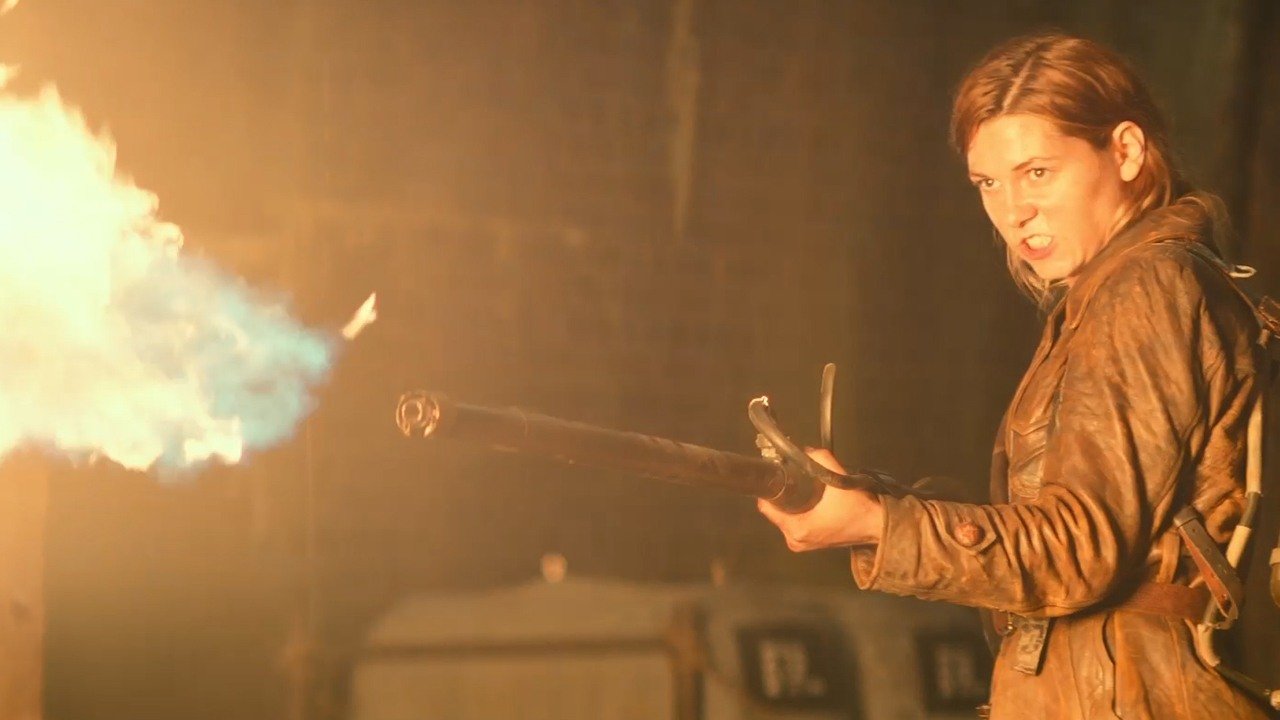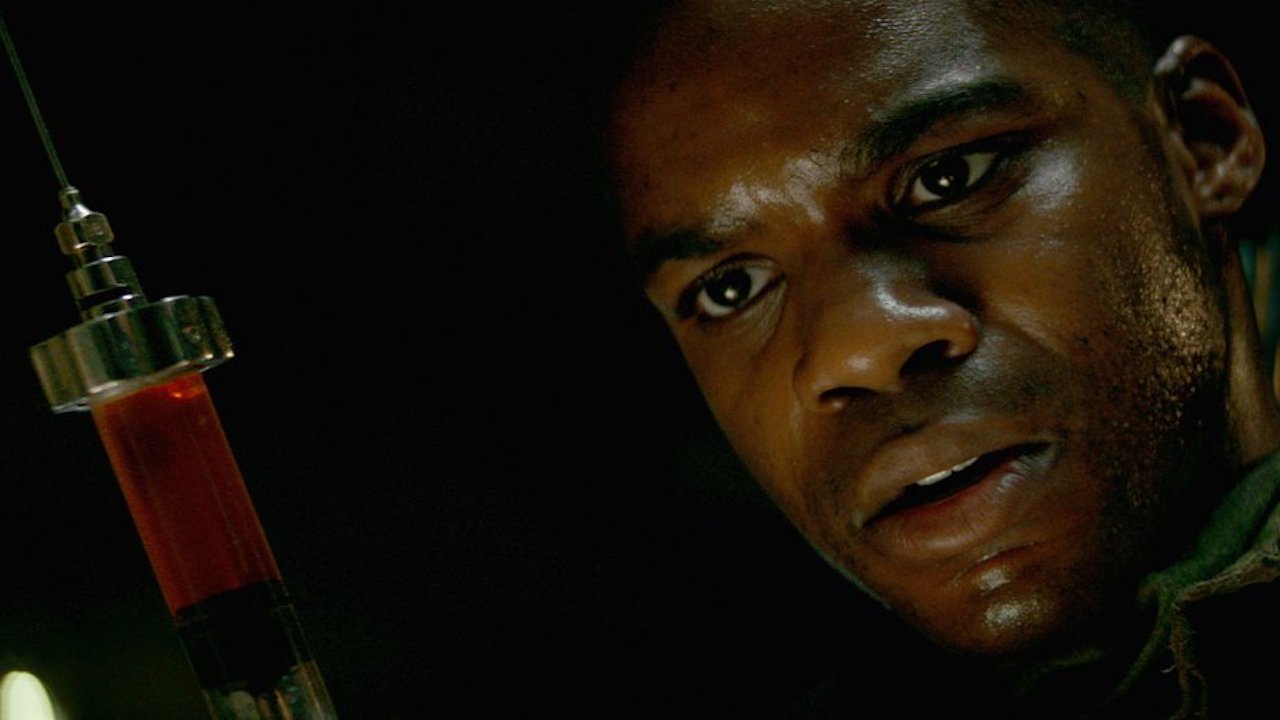Overlord is a Castle Wolfenstein movie in all but name, and it’s bloody brilliant
Nazis, zombies, state of the art graphics… Overlord is your new favourite video game movie
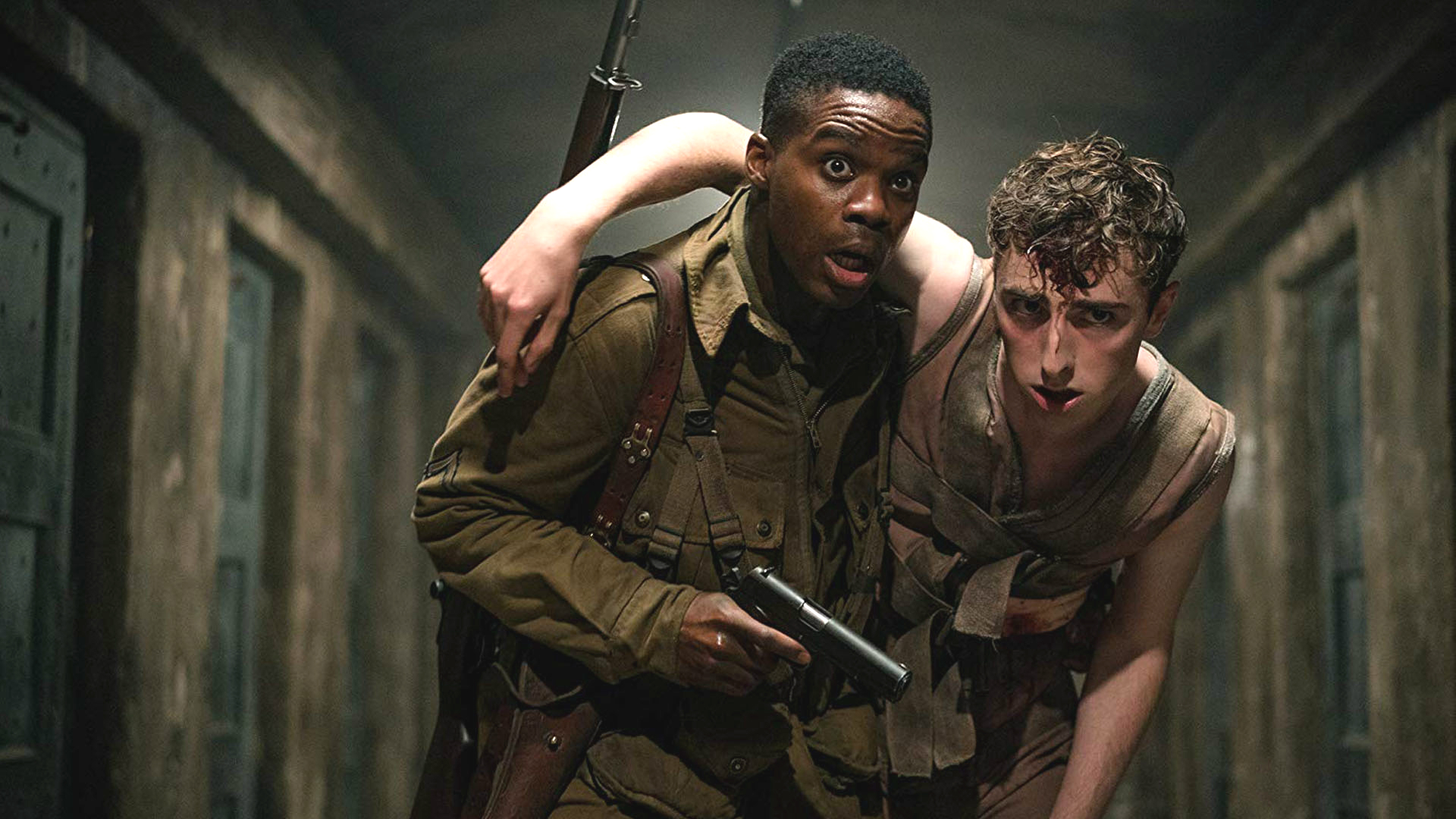
There’s a scene in Overlord in which Jovan Adepo’s Pvt. Boyce, upon infiltrating a Nazi base situated on the outer reaches of an occupied French village, careens through a series of linear corridors, dodging soldiers and examining any eye-catching points of interest along the way. Eventually, he comes across one of his kidnapped squadmates, and hastily exfils him through a vent leading to the sewers.
It’s a simple in and out mission that then repeats itself, albeit in a different matter, when Boyce returns to the facility to blow it up for good about 20 minutes later. Structurally, that seems like an odd decision for an action movie, which tends to feverishly jump from setting to setting purely for the sake of visual diversity, but Overlord is no ordinary action movie, taking its inspiration from both within and well beyond the realm of cinema.
Boyce’s unit has a single mission; to enter the Nazi facility and destroy the radio tower planted on its peak, through whatever means possible. This idea of pursuing a sole objective within a finite area, or ‘stage’, will be very familiar to anyone who’s played enough video games before, especially when Boyce essentially ‘replays the level’, advantaged by the knowledge gained from his first infiltration to finish the job he originally started.
And while we already knew Overlord would be wearing its video game influences proudly on its sleeve, what with all the Call of Duty-esque Nazi zombies running around in the trailer, this reverential mimicry of the medium’s rhythms and mores is precisely what allows the movie to stand out so well, despite a fairly generic synopsis.
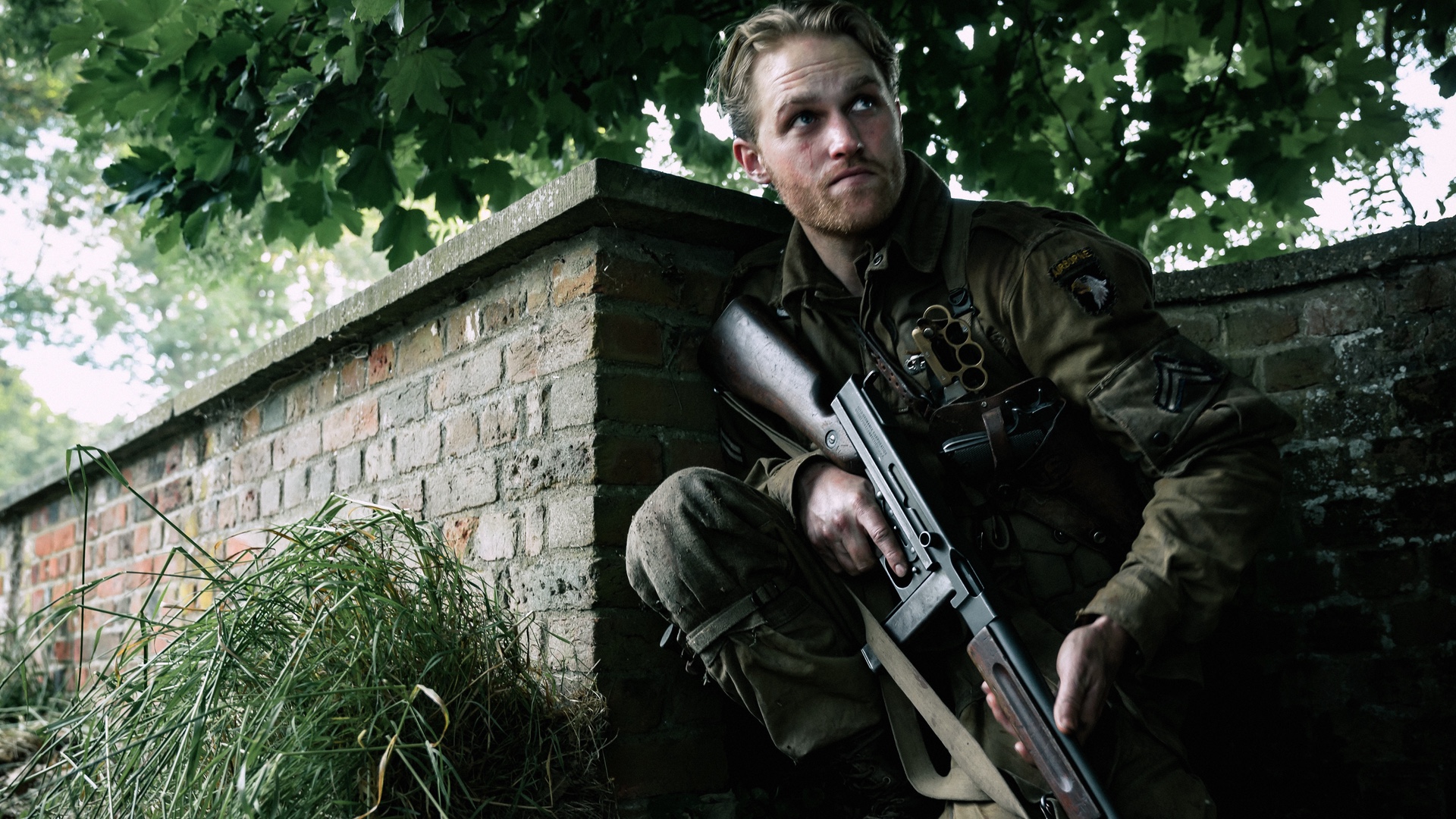
Ever since Overlord was announced as a mysterious horror project from J.J. Abram’s Bad Robot production company, people immediately started wondering whether this was the next secretive instalment in the genre-hopping Cloverfield franchise. The answer is, no, Overlord is definitely not a Cloverfield movie, but that’s probably for the best, given the state that franchise has been left in after The Cloverfield Paradox.
No, if Overlord is affiliated with anything, at least in all but name, it’s the long running Wolfenstein video game series, in which everyday American soldier “B.J." Blazkowicz single handedly dismantles Hitler’s forces (sometimes living, sometimes living dead) from the inside out, one bloody murder at a time.The big giveaway is the plot. Nazis conducting experiments in a secret WW2 fortress, and it’s up to our ragtag team of hardened American soldiers to go in and set it all on fire? Yep, that sounds like the setup for a Wolfenstein game alright. It’s the first telltale sign of a movie steeped in influences from across the medium, from its exploitative tone to an unashamedly patriotic subtext.
It’s evident in the way in which Pvt Boyce manages to run, fall, and stumble his way through a barrage of on-screen action like a player in a scripted action scene, or how its characters not only often survive what should be fatal injuries, but come back even stronger than before. Oh, and the Nazis. The Nazis are the most video game Nazis seen in cinema this side of Indiana Jones.
Get sneak previews, exclusive competitions and details of special events each month!
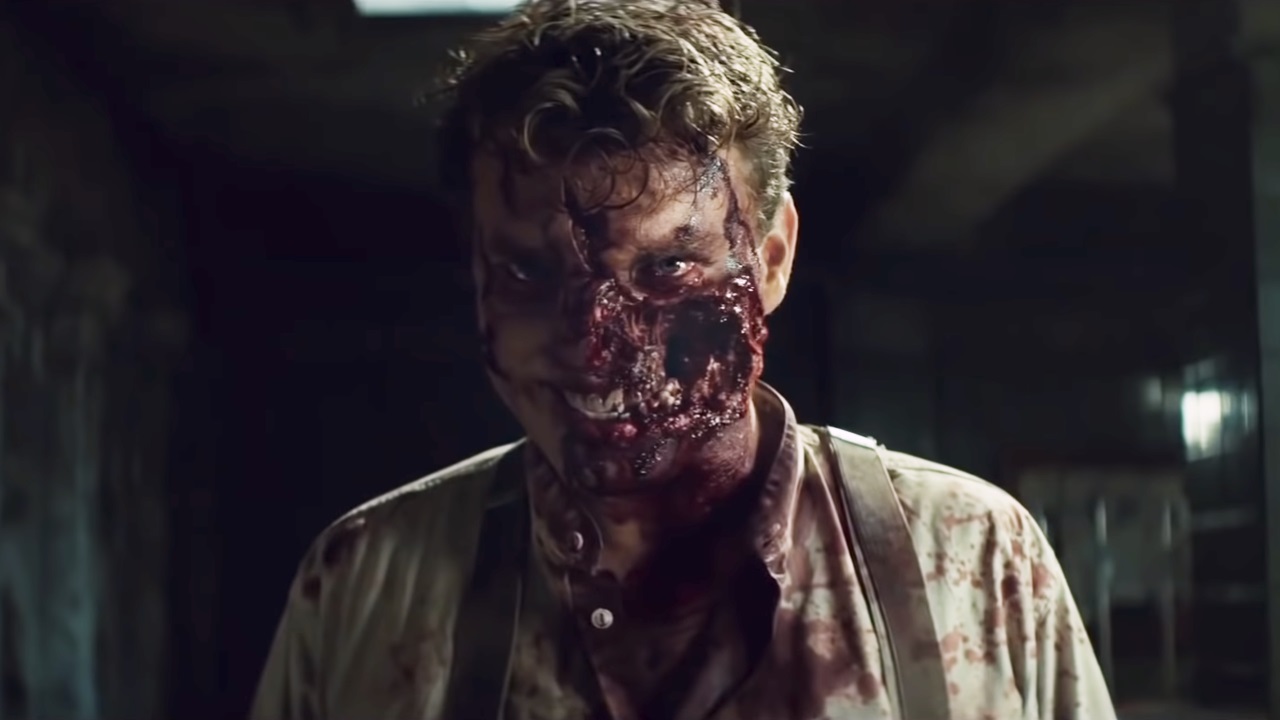
Overlord’s Third Reich soldiers are painted with the kind of delightfully theatrical villainy that other modern war films have long abandoned in favour of more sombre depictions, but video games have always loved a pantomime bad guy, as proven most recently by Wolfenstein: The New Colossus, Sniper Elite 4, and Call of Duty: WW2. Overlord proudly follows in their footsteps.
Make no mistake, director Julius Avery is very aware of how campy the movie can be, but Abrams’ latest collaborator embraces that kitsch wholeheartedly for a brazen faced, self-righteous flurry of guilty pleasure cinema. And Overlord really is one hell of a good time. It doesn’t have much to say, and it’s not particularly clever, but it is buckets of fun for those who can stomach their war films delivered with generous lashings of body horror and Tarantino-esque violence.
More importantly, Overlord goes to show that the best video game movies are never the ones with an explicit license to their name. Forget the Assassin’s Creed, Tomb Raider, and Warcrafts of bad movies past, it’s films like Scott Pilgrim vs The World, Edge of Tomorrow, and Wreck-It Ralph that really understand how video games can be adapted for the big screen.
These movies, like Overlord, aren’t bound by the ill-suited plots and characters of any particular video game, but can instead steal liberally from the medium as a whole and mould it more holistically for a better viewing experience. More heartfelt paeans than haphazard cash cows, they’re neither pressured by the expectations of an already existing fanbase nor creatively constrained by pre-defined blueprints, and the results are often spectacular. Overlord is one of the best examples of that truth to date, proving that there is a way to break the bad video game movie curse after all, just not in the way many of us might have expected.
What else are you looking forward to in cinema this year? Check out our choices of the best upcoming movies for the rest of 2018 and beyond.
I'm GamesRadar's Features Writer, which makes me responsible for gracing the internet with as many of my words as possible, including reviews, previews, interviews, and more. Lucky internet!
